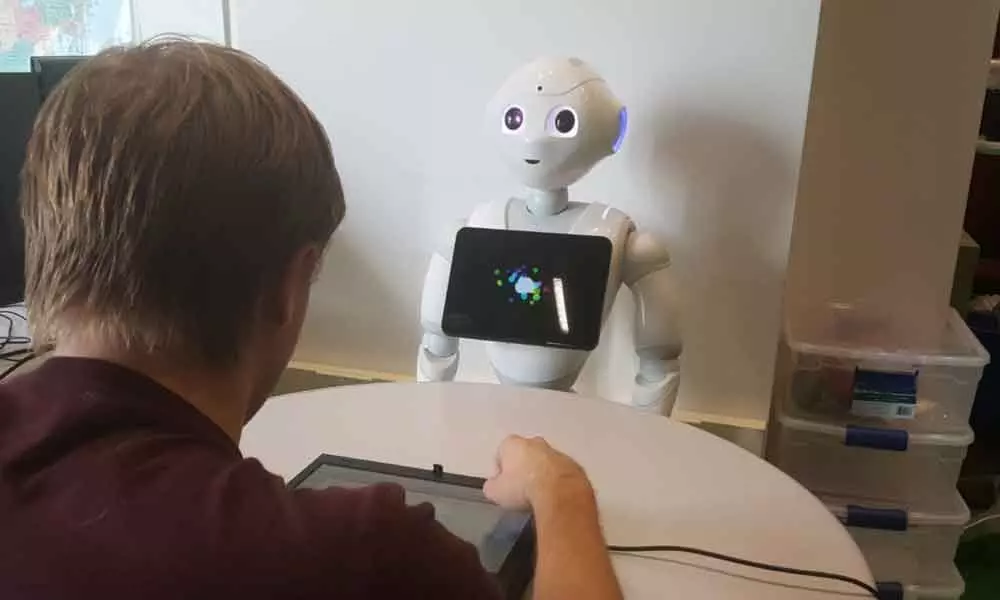Live
- Outrage as stray dogs poisoned in Sullurpeta
- Hyderabad soaks in vibrant Yuletide spirit
- Heavy rains forecast at isolated places in AP
- Paediatricians raise alarm over spread of HFMD in Prakasam
- Cong demands Shah’s expulsion
- One-man panel to visit three districts from Dec 27
- Monitor investments, creation of jobs: CS
- Hyderabad: City-based Karaoke group feted by Rafi family
- Rachakonda sees uptick in murders, kidnappings; overall crime rate rises
- Hyderabad: Police bust drug racket, three land behind bars
Just In
Trash talk hurts even when it comes from a robot: Study


Discouraging words such as "I have to say you are a terrible player" can be disturbing for people even when uttered by a robot, according to a study presented here.
New Delhi (PTI): Discouraging words such as "I have to say you are a terrible player" can be disturbing for people even when uttered by a robot, according to a study presented here.
In the study, people who played a game with a commercially available humanoid robot known as Pepper performed worse when the machine discouraged them, and better when it encouraged them. The researchers noted that some of the 40 study participants were technically sophisticated and fully understood that a machine was the source of their discomfort. "One participant said, 'I don't like what the robot is saying, but that's the way it was programmed so I can't blame it,'" said Lead author Aaron M. Roth, who conducted the study while he was a master's student at the Carnegie Mellon University (CMU) in the US.
The study, presented last month at the IEEE International Conference on Robot & Human Interactive Communication (RO-MAN) in New Delhi, found that, overall, human performance ebbed regardless of technical sophistication. The study is a departure from typical human-robot interaction studies, which tend to focus on how humans and robots can best work together, the researchers said. "This is one of the first studies of human-robot interaction in an environment where they are not cooperating," said Fei Fang, an assistant professor in the Institute for Software Research at CMU. It has enormous implications for a world where the number of robots and internet of things (IoT) devices with artificial intelligence capabilities is expected to grow exponentially, the researchers noted.
"We can expect home assistants to be cooperative, but in situations such as online shopping, they may not have the same goals as we do," said Fang. The researchers designed a study in which humans would compete against a robot in a game called "Guards and Treasures," to analyse rationality. This is a typical game used to study defender-attacker interaction in research on security games. Each participant played the game 35 times with the robot,

© 2024 Hyderabad Media House Limited/The Hans India. All rights reserved. Powered by hocalwire.com






